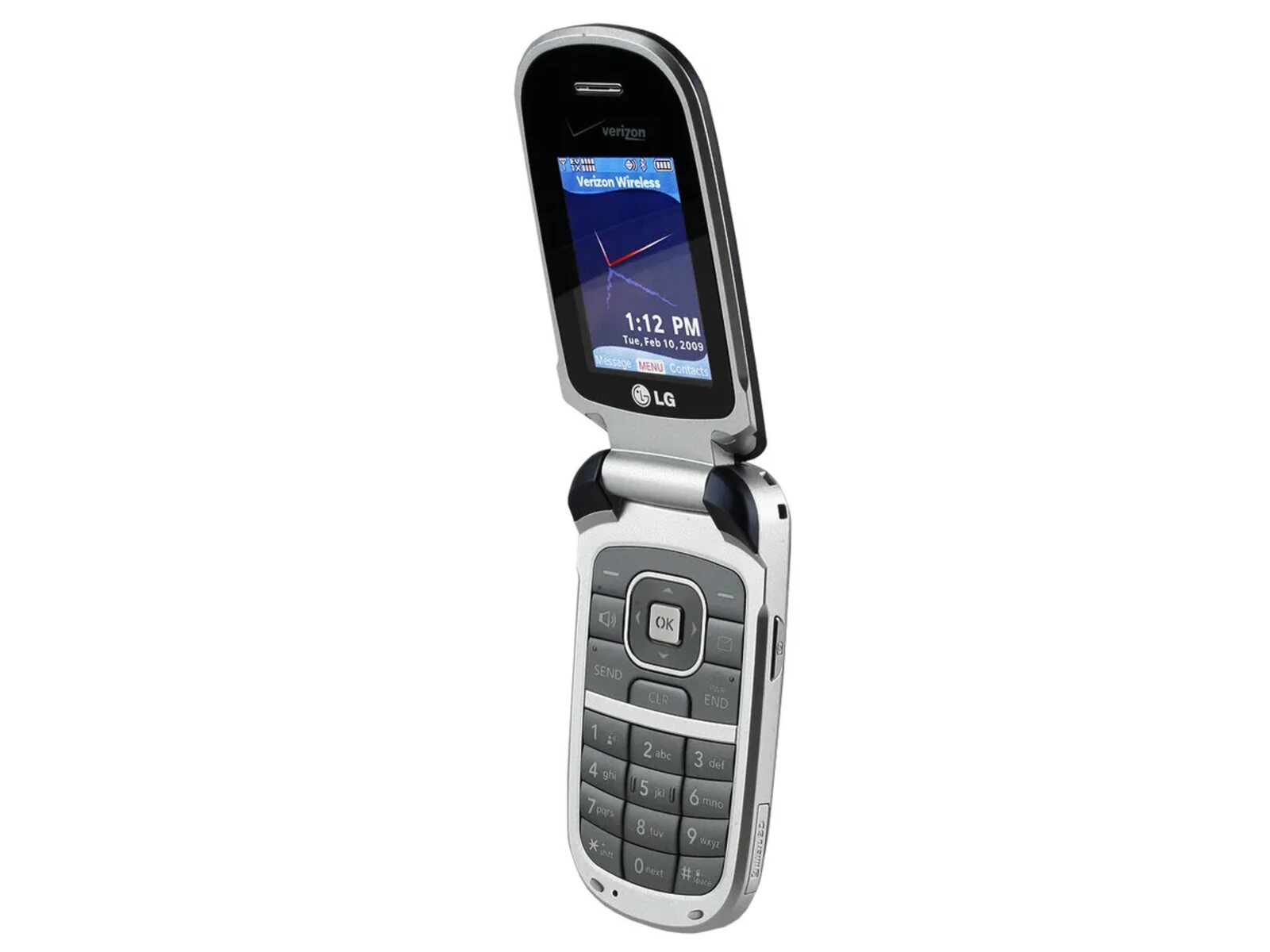Introduction
The "SIM Card is Not From Verizon" message is a common issue that many mobile device users encounter. It can be frustrating to see this message, especially when you are trying to use your device on the Verizon network. This message typically appears when you insert a SIM card from a different carrier into a Verizon device. The device recognizes that the SIM card does not belong to Verizon and prompts this message to inform you of the mismatch.
Dealing with this issue can be perplexing, but rest assured, there are solutions available to resolve it. In this article, we will delve into the reasons behind the "SIM Card is Not From Verizon" message and explore effective methods to rectify this problem. Whether you are a tech-savvy individual or someone who is not well-versed in mobile device intricacies, this guide will provide you with the necessary insights to troubleshoot and resolve this common issue.
Understanding the reasons behind this message is crucial in finding the most suitable resolution. By gaining a comprehensive understanding of the underlying causes, you can approach the troubleshooting process with clarity and confidence. So, let's delve into the reasons behind the "SIM Card is Not From Verizon" message and the steps to effectively resolve this issue.
Reasons for the "SIM Card is Not From Verizon" Message
The "SIM Card is Not From Verizon" message surfaces due to several factors, understanding which is pivotal in troubleshooting the issue effectively. Here are the primary reasons behind this message:
-
Incompatible SIM Card: Verizon devices are designed to work seamlessly with Verizon SIM cards. When a SIM card from another carrier is inserted, the device may detect the mismatch and trigger the "SIM Card is Not From Verizon" message. This occurs because the device recognizes that the inserted SIM card does not correspond to the expected Verizon SIM card.
-
Device Lock: Some mobile devices are locked to a specific carrier, restricting the use of SIM cards from other carriers. For instance, if a Verizon device is locked to the Verizon network, inserting a SIM card from a different carrier may prompt the device to display the "SIM Card is Not From Verizon" message. This lock is intended to ensure that the device is used exclusively with the designated carrier's network.
-
Network Compatibility: Verizon operates on a distinct network technology, and its devices are optimized to function seamlessly within this network. When a non-Verizon SIM card is inserted, the device may detect a network incompatibility, leading to the display of the "SIM Card is Not From Verizon" message.
-
Activation Issues: In some cases, the "SIM Card is Not From Verizon" message may arise due to activation issues. If the inserted SIM card has not been properly activated or registered with the Verizon network, the device may not recognize it as a valid Verizon SIM card, triggering the error message.
Understanding these reasons is essential in navigating the troubleshooting process effectively. By comprehending the underlying causes, you can proceed to resolve the "SIM Card is Not From Verizon" message with clarity and precision. Now, let's explore the practical steps to address this issue and restore seamless functionality to your Verizon device.
How to Resolve the "SIM Card is Not From Verizon" Message
Resolving the "SIM Card is Not From Verizon" message involves a systematic approach to address the underlying causes effectively. Here are the steps to resolve this issue:
-
Verify SIM Card Compatibility: Begin by ensuring that the inserted SIM card is compatible with the Verizon network. If you are using a non-Verizon SIM card, consider obtaining a Verizon-compatible SIM card from the respective carrier. This step is crucial, especially if the current SIM card is incompatible with Verizon's network technology.
-
Check Device Lock Status: Determine if your device is locked to the Verizon network. If it is locked, you may need to contact Verizon to request an unlock, allowing you to use SIM cards from other carriers. Alternatively, if the device is owned outright, you can explore third-party services that offer unlocking solutions for various devices.
-
Network Compatibility: Assess the network compatibility of the inserted SIM card. Ensure that the carrier associated with the SIM card operates on a network technology compatible with Verizon. This is essential to avoid network incompatibility issues that may trigger the "SIM Card is Not From Verizon" message.
-
Activation and Registration: If you have a valid Verizon SIM card, ensure that it has been activated and registered properly. Contact Verizon's customer support or utilize their online activation portal to activate the SIM card. This step is crucial, as an unactivated SIM card may prompt the device to display the error message.
-
Reset Network Settings: In some cases, resetting the network settings on your device can resolve the "SIM Card is Not From Verizon" message. Navigate to the network settings menu on your device and select the option to reset network settings. This can help clear any configuration discrepancies that may be contributing to the issue.
-
Update Device Software: Ensure that your device's software is up to date. Check for any available software updates in the device settings menu and install them if applicable. Software updates often include bug fixes and enhancements that can address compatibility issues, potentially resolving the "SIM Card is Not From Verizon" message.
By following these steps, you can effectively troubleshoot and resolve the "SIM Card is Not From Verizon" message, restoring seamless functionality to your Verizon device. If the issue persists after attempting these solutions, consider reaching out to Verizon's customer support for further assistance. Remember, addressing the underlying causes with a methodical approach is key to resolving this common mobile device issue.
Conclusion
In conclusion, encountering the "SIM Card is Not From Verizon" message can be a perplexing experience for mobile device users, often leading to frustration and uncertainty. However, by understanding the underlying reasons for this message and employing the appropriate troubleshooting methods, it is possible to effectively resolve this common issue.
Throughout this article, we have explored the primary reasons behind the "SIM Card is Not From Verizon" message, including incompatible SIM cards, device locks, network compatibility issues, and activation-related concerns. By comprehending these factors, users can approach the troubleshooting process with clarity and precision.
The detailed steps provided for resolving this issue encompass essential measures such as verifying SIM card compatibility, checking device lock status, assessing network compatibility, ensuring proper activation and registration, resetting network settings, and updating device software. These systematic approaches empower users to address the root causes of the error message and restore seamless functionality to their Verizon devices.
It is important to emphasize that patience and persistence are key when addressing this issue. In some instances, multiple troubleshooting steps may be required to fully resolve the "SIM Card is Not From Verizon" message. Additionally, seeking assistance from Verizon's customer support can provide valuable guidance and support in navigating this issue.
By following the recommended steps and remaining proactive in addressing the underlying causes, users can overcome the "SIM Card is Not From Verizon" message, ensuring uninterrupted connectivity and usage of their Verizon devices.
In the ever-evolving landscape of mobile technology, encountering occasional challenges such as the "SIM Card is Not From Verizon" message is not uncommon. However, with the knowledge and solutions presented in this article, users can approach such issues with confidence, knowing that effective resolutions are within reach.
Ultimately, by staying informed and proactive, mobile device users can navigate and overcome common challenges, ensuring a seamless and rewarding user experience with their Verizon devices.

























